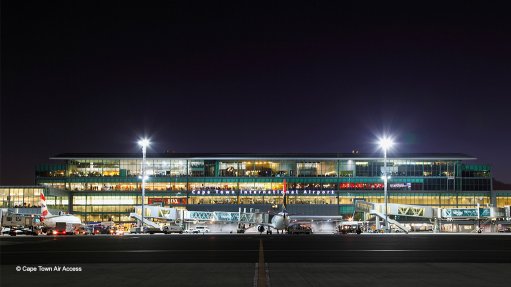100-year floods
Growing up in KwaZulu-Natal, I would regularly travel with my father to far-flung parts of the province as he embarked on community infrastructure projects. On these trips, he would point out the ‘100-year’ flood marks.
As a youngster, I took the 100-year period literally, as I suspect many South Africans still do. This might trick you into thinking that, in your entire life, you will experience only a singular such event, at the very most. The estimation of the 100-year flood recurrence interval is underpinned by a mathematical calculation called Weibullʼs Formula.
If you are interested in further investigating the 100-year flood, you might well want to look up ‘100-year flood disambiguation’. Disambiguation is defined as the act or process of distinguishing between similar things in order to make the meaning or interpretation clearer or more certain. It is generally considered that a 100-year flood is an event that has a 1 in 100 chance – 1% probability – of being equalled or exceeded in any given year. This may appear to be a remote chance; however,there is approximately a 63.4% chance of one or more 100-year floods occurring in any 100-year period.
On April 13, The Guardian newspaper published a story headlined ‘South Africa floods: deadliest storm on record kills over 300 people; President blames catastrophic rainfall in KwaZulu-Natal on climate crisis’. Yet, at the time of writing – April 18 – a state of emergency had not been declared. As I understand it, in accordance with the Constitution and the State of Emergency Act, the President may declare a state of emergence when “the life of the nation is threatened by war, invasion, general insurrection, disorder, natural disaster or other public emergency”. The President did declare a state of disaster, for which I could find no precedent besides the one that was declared for the Covid-19 pandemic. Why not a state of emergency?
As tragic as the recent flooding has been, it is by no means a unique event – an anomaly, if you will. Rewind three years to April 18 to 22, 2019 – which was also during Easter and also occurred in Durban. As Wikipedia reminds: “The coastal city of Durban, South Africa, experienced severe flooding, caused by torrential rain brought on by a steep upper-air trough, which deepened into low pressure in the upper levels of the atmosphere, and impacted the city and its surrounding areas starting April 18, 2019. The floods have resulted in at least 70 deaths caused by collapsed buildings, mudslides and sinkholes. It is one of the deadliest disasters to hit the country in the 2010s decade.”
So, what lessons were learned? What corrective actions were taken?
The one storm (and subsequent flooding) that has been ingrained in my memory to this day also occurred in Durban. It formed on January 16, 1984, and dissipated on February 2, 1984. The storm was called Tropical Storm Domoina.
Returning to the President’s assessment that the ‘catastrophic’ rainfall in KwaZulu-Natal was due to the climate crisis – what do the experts say? Citing the South African Weather Service, BBC News stated in an article titled ‘Durban floods: Is it a consequence of climate change?’ that the amount of rain was “of the order of values normally associated with tropical cyclones”. The service believes “it is not correct to attribute individual weather events occurring over short timescales to longer-term trends, such as global warming.”
If the flooding was not due to weather, was it then not due to economics? This is an economics column, after all. Is the true tragedy not aptly surmised in an SABC news article published on April 17 and headlined ‘South African floods wreaked havoc because people are forced to live in disaster-prone areas’. Is it not also a case of lessons not being learned, and of an economy faltering?
Article Enquiry
Email Article
Save Article
Feedback
To advertise email advertising@creamermedia.co.za or click here
Announcements
What's On
Subscribe to improve your user experience...
Option 1 (equivalent of R125 a month):
Receive a weekly copy of Creamer Media's Engineering News & Mining Weekly magazine
(print copy for those in South Africa and e-magazine for those outside of South Africa)
Receive daily email newsletters
Access to full search results
Access archive of magazine back copies
Access to Projects in Progress
Access to ONE Research Report of your choice in PDF format
Option 2 (equivalent of R375 a month):
All benefits from Option 1
PLUS
Access to Creamer Media's Research Channel Africa for ALL Research Reports, in PDF format, on various industrial and mining sectors
including Electricity; Water; Energy Transition; Hydrogen; Roads, Rail and Ports; Coal; Gold; Platinum; Battery Metals; etc.
Already a subscriber?
Forgotten your password?
Receive weekly copy of Creamer Media's Engineering News & Mining Weekly magazine (print copy for those in South Africa and e-magazine for those outside of South Africa)
➕
Recieve daily email newsletters
➕
Access to full search results
➕
Access archive of magazine back copies
➕
Access to Projects in Progress
➕
Access to ONE Research Report of your choice in PDF format
RESEARCH CHANNEL AFRICA
R4500 (equivalent of R375 a month)
SUBSCRIBEAll benefits from Option 1
➕
Access to Creamer Media's Research Channel Africa for ALL Research Reports on various industrial and mining sectors, in PDF format, including on:
Electricity
➕
Water
➕
Energy Transition
➕
Hydrogen
➕
Roads, Rail and Ports
➕
Coal
➕
Gold
➕
Platinum
➕
Battery Metals
➕
etc.
Receive all benefits from Option 1 or Option 2 delivered to numerous people at your company
➕
Multiple User names and Passwords for simultaneous log-ins
➕
Intranet integration access to all in your organisation
















